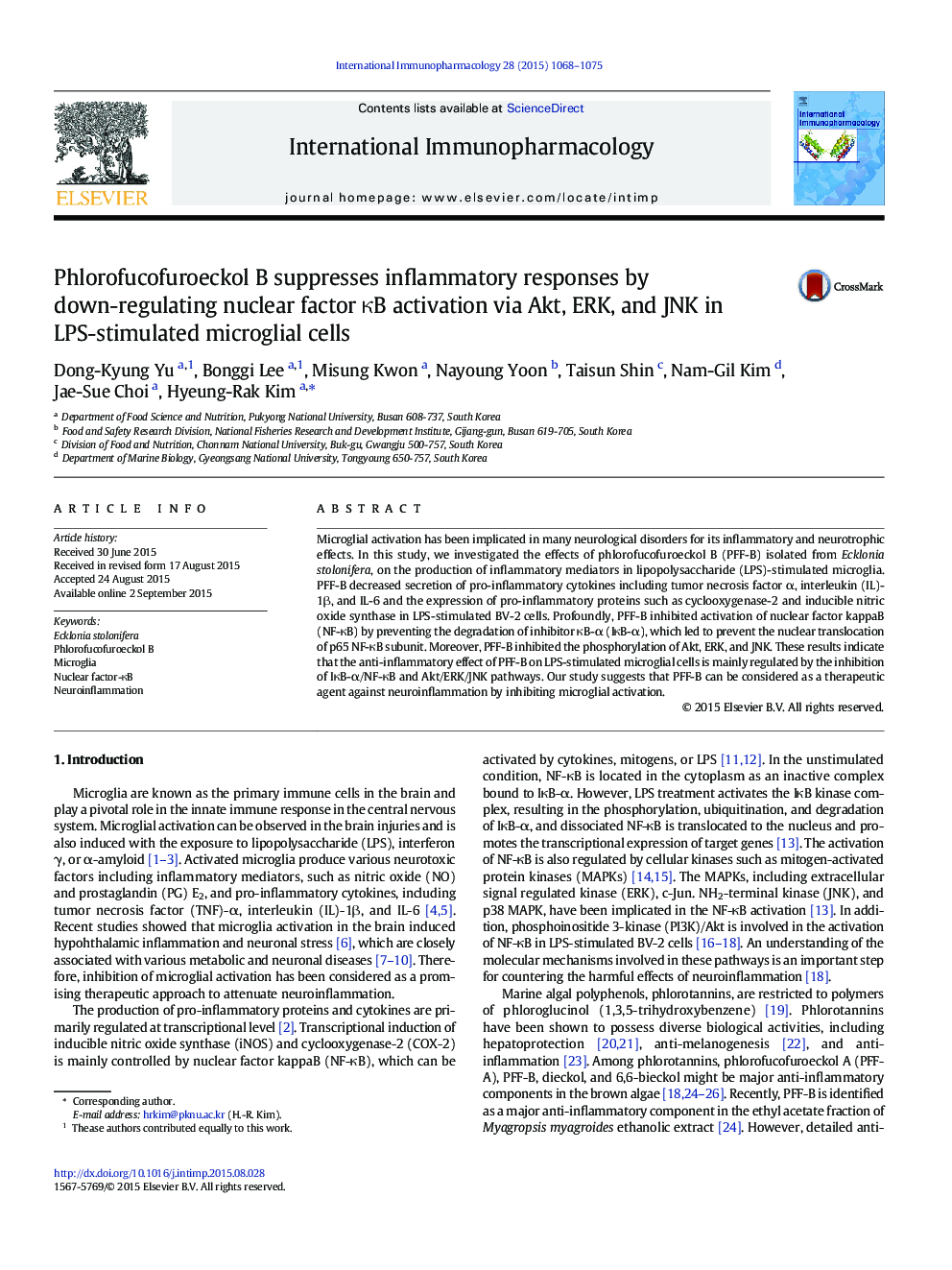| Article ID | Journal | Published Year | Pages | File Type |
|---|---|---|---|---|
| 2540403 | International Immunopharmacology | 2015 | 8 Pages |
•PFF-B decreased the iNOS and COX-2 expression at the transcription level.•Phlorofucofuroeckol B (PFF-B) inhibited traslocation of NF-κB into nucleus.•PFF-B can be considered as a therapeutic agent by inhibiting microglial activation
Microglial activation has been implicated in many neurological disorders for its inflammatory and neurotrophic effects. In this study, we investigated the effects of phlorofucofuroeckol B (PFF-B) isolated from Ecklonia stolonifera, on the production of inflammatory mediators in lipopolysaccharide (LPS)-stimulated microglia. PFF-B decreased secretion of pro-inflammatory cytokines including tumor necrosis factor α, interleukin (IL)-1β, and IL-6 and the expression of pro-inflammatory proteins such as cyclooxygenase-2 and inducible nitric oxide synthase in LPS-stimulated BV-2 cells. Profoundly, PFF-B inhibited activation of nuclear factor kappaB (NF-κB) by preventing the degradation of inhibitor κB-α (IκB-α), which led to prevent the nuclear translocation of p65 NF-κB subunit. Moreover, PFF-B inhibited the phosphorylation of Akt, ERK, and JNK. These results indicate that the anti-inflammatory effect of PFF-B on LPS-stimulated microglial cells is mainly regulated by the inhibition of IκB-α/NF-κB and Akt/ERK/JNK pathways. Our study suggests that PFF-B can be considered as a therapeutic agent against neuroinflammation by inhibiting microglial activation.
